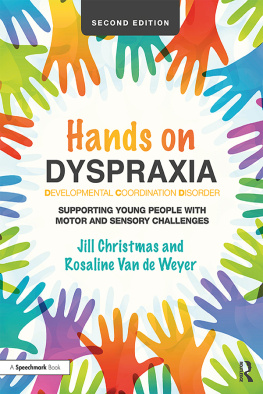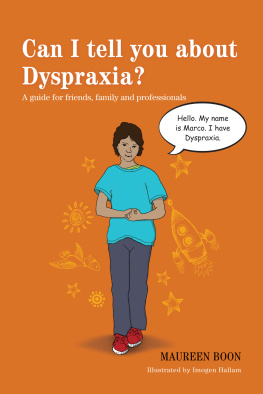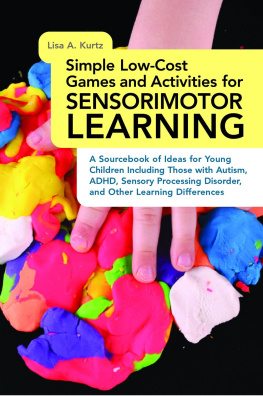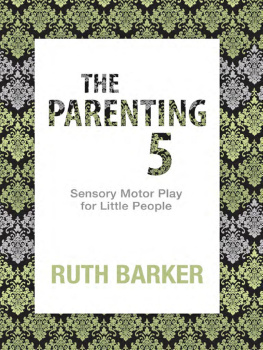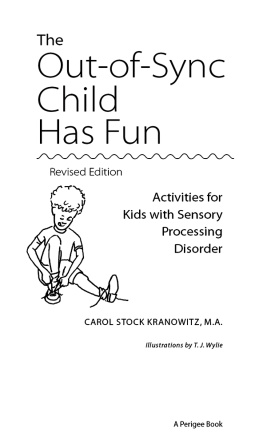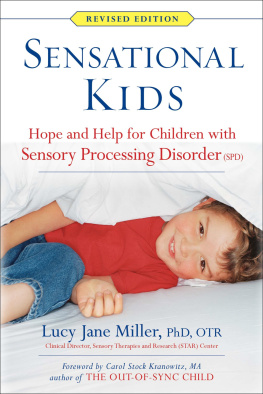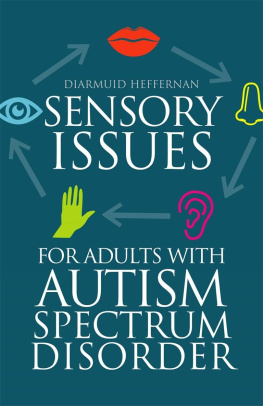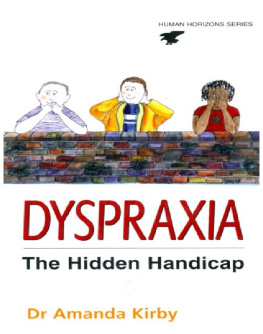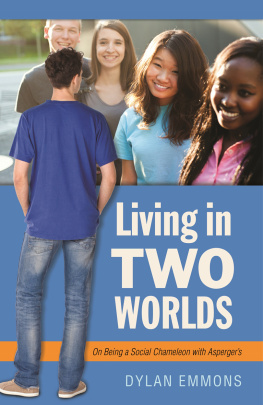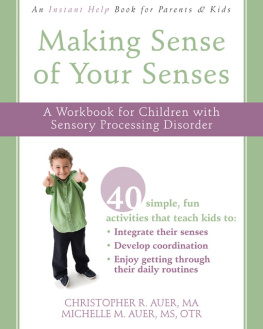Hands on DYSPRAXIA
This updated new edition is a practical guidebook for parents, teachers and other professionals supporting children with sensory and motor learning difficulties. It offers an understanding of developmental coordination disorder (DCD), and the impact that this can have in both home and school settings. Each chapter offers practical hands-on strategies, activities and ideas for managing the effects of the condition as well as providing a sound medical and physiological understanding of the condition to facilitate access to education and everyday living.
Each chapter contains:
A clear explanation of potential challenges that people with DCD and coexisting conditions face, with an introductory definition, along with reference to current terminology
Exploration of the implications of these challenges on home life, educational and social environments
Practical strategies and ideas to help the child or young person reach their full potential
Written by occupational therapists with extensive experience of DCD/dyspraxia and possible associated conditions, this book is structured in an accessible way, suitable for: parents, carers, teachers or health professionals seeking guidance for the young people they support. This is a must read for anybody looking to support children and young people with this often misunderstood condition.
Though now retired as an occupational therapist, Jill Christmas still continues to provide informal advice to parents, grandparents and carers who have children struggling with issues caused by dyspraxia and allied challenges. Jill was previously the principal of her own clinic, which had a team of occupational therapists and other linked professionals. The clinic had contracts with Special Schools, LEAs and the NHS for the assessment and treatment of children with dyspraxia, DCD, A[DH]D, austistic spectrum disorders, sensory integrative dysfunction and a range of other conditions. The clinic now continues under different management and is based in Sussex.
Rosaline Van de Weyer has both a personal and professional interest in supporting people with DCD. Her son was diagnosed with DCD at the age of 8 years old. She experiences the joys and, at times, heartache of bringing up a distracted, needs to write more neatly (school reports) fabulous young man. Occupational therapy has been a passion for 20 years, helping people overcome difficulties and thrive in all aspects of life. Rosaline manages Dyspraxia UK, an occupational therapy assessment service for people of all ages. This service is primarily independent, but is commissioned by NHS Clinical Commissioning Groups in areas that do not have existing services to meet the demand.
Second edition published 2020
by Routledge
2 Park Square, Milton Park, Abingdon, Oxon OX14 4RN
and by Routledge
52 Vanderbilt Avenue, New York, NY 10017
Routledge is an imprint of the Taylor & Francis Group, an informa business
2020 Jill Christmas and Rosaline Van de Weyer
The right of Jill Christmas and Rosaline Van de Weyer to be identified as authors of this work has been asserted by them in accordance with Sections 77 and 78 of the Copyright, Designs and Patents Act 1988.
All rights reserved. No part of this book may be reprinted or reproduced or utilised in any form or by any electronic, mechanical, or other means, now known or hereafter invented, including photocopying and recording, or in any information storage or retrieval system, without permission in writing from the publishers.
Trademark notice: Product or corporate names may be trademarks or registered trademarks, and are used only for identification and explanation without intent to infringe.
First edition published 2009 by Speechmark Publishing Ltd
British Library Cataloguing-in-Publication Data
A catalogue record for this book is available from the British Library
Library of Congress Cataloging-in-Publication Data
Names: Christmas, Jill, author. | Van de Weyer, Rosaline, author.
Title: Hands on DCD (dyspraxia and allied disorders) : supporting children and young people with sensory and motor learning challenges / Jill Christmas and Rosaline Van de Weyer.
Other titles: Hands on dyspraxia
Description: 2nd edition. | Abingdon, Oxon ; New York, NY : Routledge, 2020. | Revised edition of: Hands on dyspraxia. Brackley : Speechmark, 2009. | Includes bibliographical references and index.
Identifiers: LCCN 2019032776 (print) | LCCN 2019032777 (ebook) | ISBN 9781138600973 (paperback) | ISBN 9780429438998 (ebook)
Subjects: LCSH: ApraxiaPatientsServices for. | Psychomotor disorders in children.
Classification: LCC RJ496.A63 C57 2020 (print) | LCC RJ496.A63 (ebook) | DDC 618.92/8552dc23
LC record available at https://lccn.loc.gov/2019032776
LC ebook record available at https://lccn.loc.gov/2019032777
ISBN: 978-1-138-60097-3 (pbk)
ISBN: 978-0-429-43899-8 (ebk)
This handbook is dedicated to my younger sister Sally, who was very involved in supporting children with additional challenges throughout her teaching career. Sally had the idea for the underlying hands design of the original frontispiece in the first edition of Hands on Dyspraxia, which is now being carried over to the second edition. She also contributed to the concept of What, So What, Now What in terms of the books layout. Latterly, Sally lived with me, following a diagnosis of a severe medical condition, which she fought with her determination and her positive attitude. She is a worthy recipient of this dedication.
Much admiration and our love, Sally (23 June 195214 August 2019).
Jill Christmas
Dyspraxia or developmental coordination disorder (DCD) is a common disorder affecting movement and coordination, in which symptoms present in childhood and can persist through to adulthood.
The range and variety of co-occurring difficulties means that the challenges experienced by the individual who presents with DCD often require the intervention of many different professionals in addition to that of the occupational therapist; speech and language therapists, educational psychologists, paediatricians, behavioural optometrists, physiotherapists, teachers and general practitioners, to name but a few. It is therefore critical that all those professionals working in this field, as part of a multidisciplinary team, should have information and training in aspects of this disorder in an effort to offer the best overall intervention possible.
Occupational therapists Jill Christmas and Rosaline Van de Weyer have addressed this need by producing a comprehensive text that can be used by the practising professional. The authors have recognised that the successful management of developmental coordination disorder requires a definition and meaning of the disorder, an explanation of the issues and challenges experienced by the individual, and practical strategies and ideas for intervention, not only for DCD but also for conditions that may coexist with the disorder.
Each chapter follows an easily accessible format, namely What, So What and Now What, relating to each of the many aspects of the disorder. What comprises an introductory definition and meaning, So What addresses issues and challenges experienced by the individual, and Now What provides practical strategies and ideas for use in treatments. As such, Jill Christmas and Rosaline Van de Weyer have not only offered readers a sound, well- written foundation to the disorder in terms of diagnostic criteria and assessment but have also translated their considerable clinical experience into practical approaches for all professionals working with those individuals who experience developmental coordination disorder. I believe this publication will have a very positive impact on clinical practice and prove a helpful resource for parents and carers.

